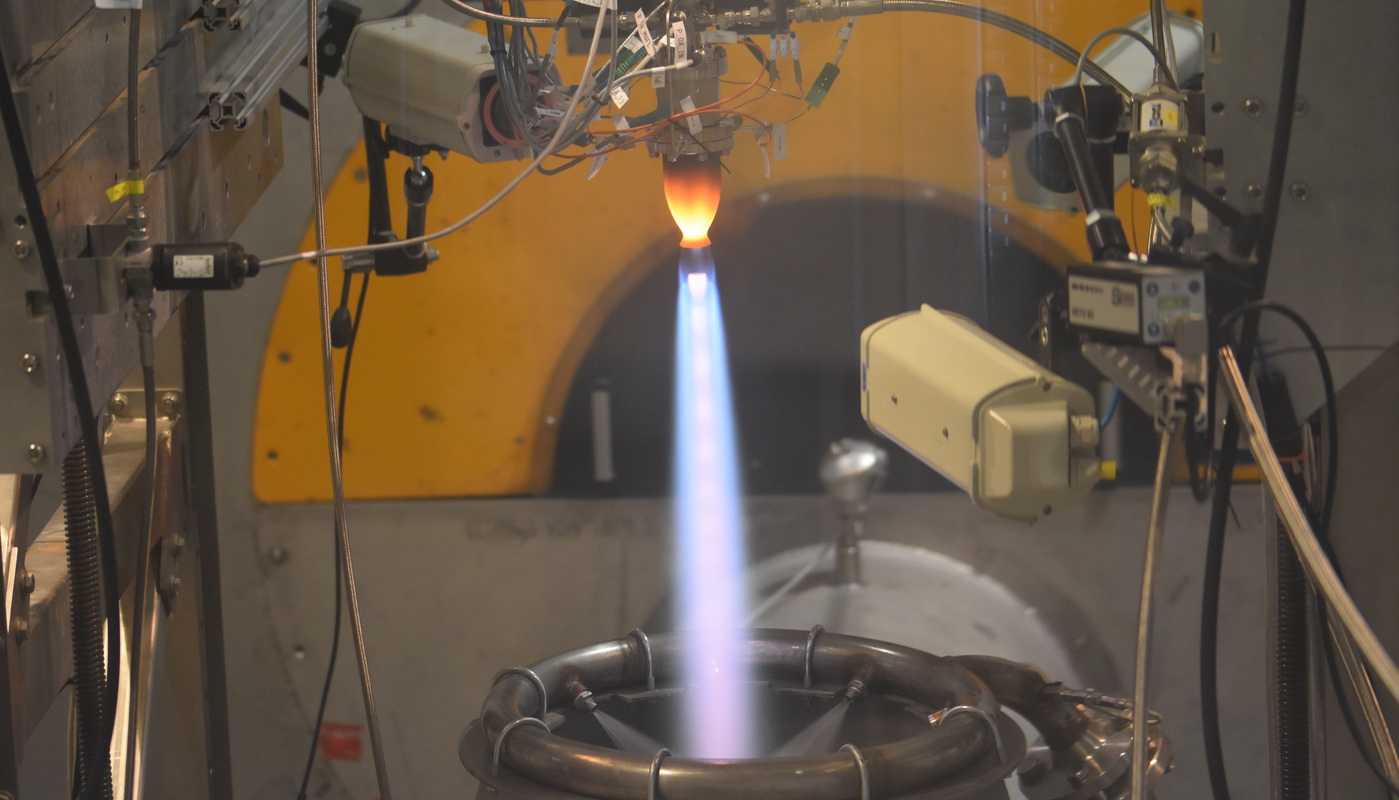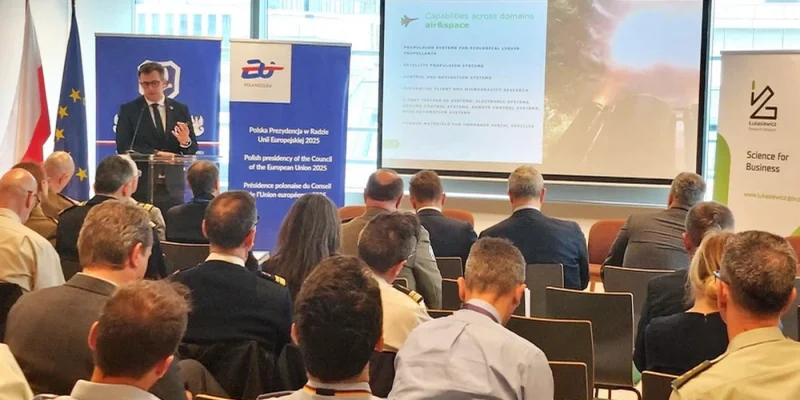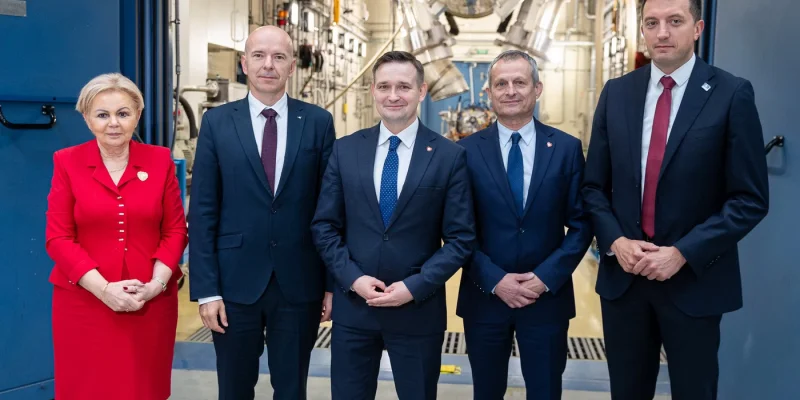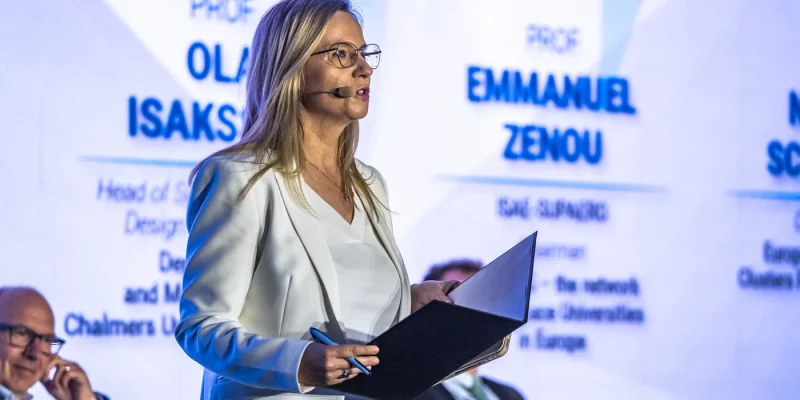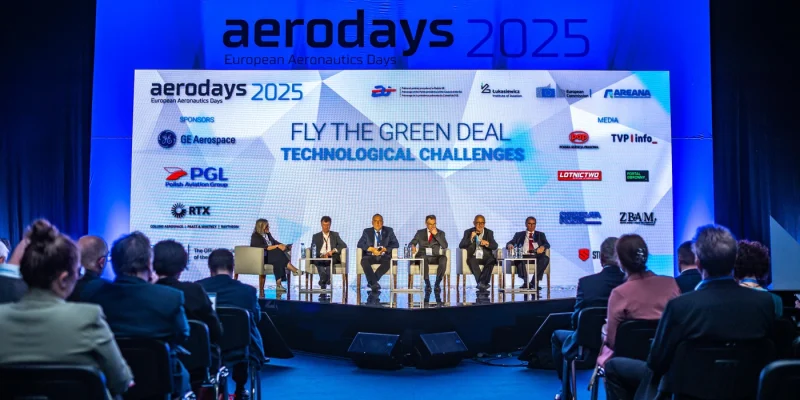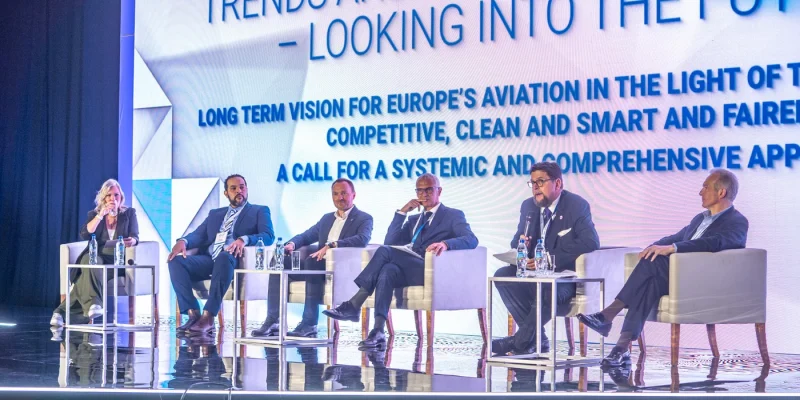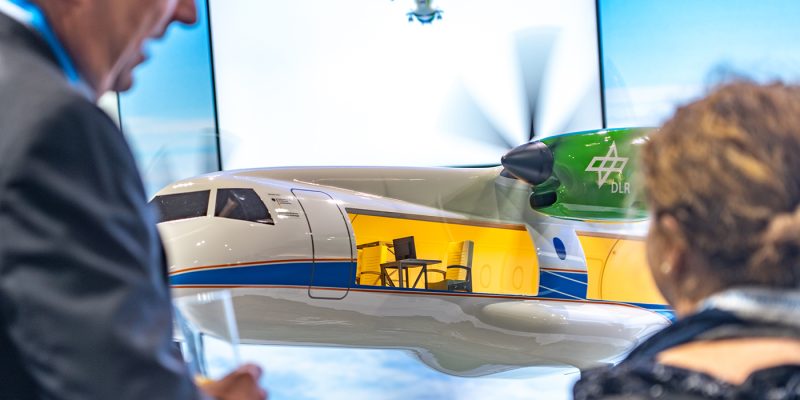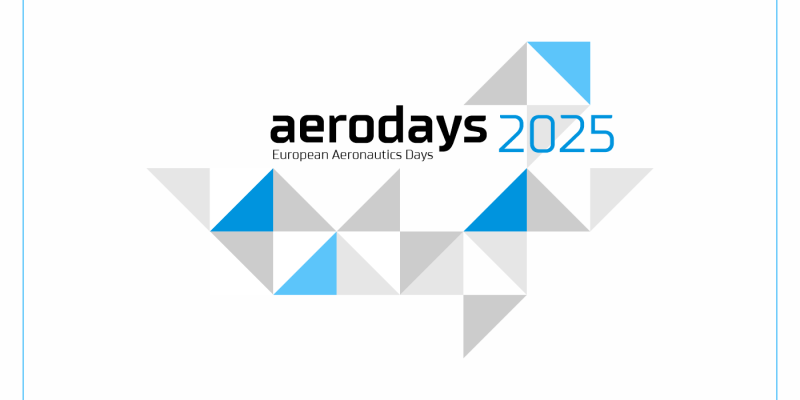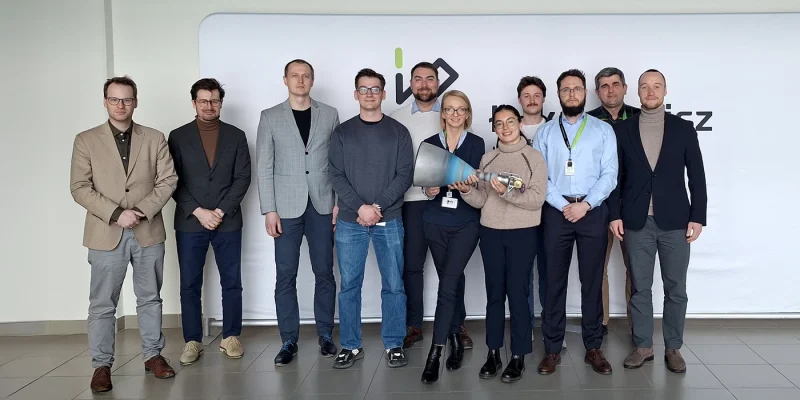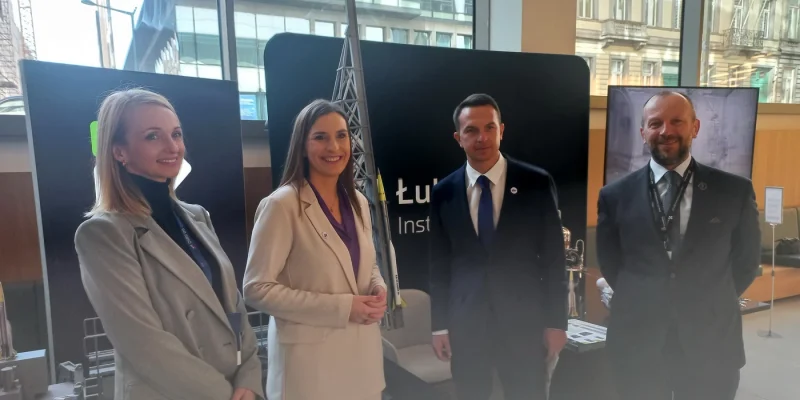In the first quarter of 2024, the Łukasiewicz – Institute of Aviation successfully completed a series of tests of the engine that belongs to the category of the largest subsystems in satellite propulsion. The development of this engine is carried out as part of the GRACE project, financed by the Polish contribution to the European Space Agency.
The engine uses a number of unique technologies developed by the Institute and with the participation of industrial partners. These refer to material technologies (including a composition of materials capable of continuous operation at a temperature of 1500°C), as well as a globally unique catalyst for the decomposition of highly concentrated hydrogen peroxide, allowing long-term operation at temperatures up to 950°C and in an oxidizing environment.
“We are currently at the stage of verifying the engine engineering model. We conducted experiments on ground. However, the engine itself is designed to operate in a very demanding space environment. The next step will be to prepare a flight-like engine and further verification tests”, says Dr. Eng. Paweł Surmacz, GRACE project manager at Łukasiewicz – Institute of Aviation.
The project is consistent with the modern trend of sustainable propulsion solutions through the use of non-toxic, so-called green propellants, including highly concentrated hydrogen peroxide (98%), the production technology of which was also developed by the Institute.
“In the project, we use our special research infrastructure intended for testing rocket and space propulsion: an atmospheric propulsion test facility, allowing for advanced tests in the ground environment. In the next phase of the GRACE development program, we plan experimental works on a new vacuum test stand which was created with the financial support from the Marshal’s Office of the Masovian Voivodeship. This facility allows us to simulate operating conditions close to real ones. This is done by applying a vacuum system that maintains a constant vacuum level”, adds Dr. Eng. Paweł Surmacz.
The engine can be used both in future space platforms performing demanding service missions, as well as in the last stages of small launch vehicles (the so-called kick-stage). Łukasiewicz – Institute of Aviation is also gradually developing other propulsion solutions that can be used by spacecraft, designed for regular in-orbit service missions.
Learn more:
_
The Łukasiewicz Research Network – Institute of Aviation is one of the most modern research facilities in Europe, with traditions dating back to 1926. The Institute closely cooperates with global tycoons of the aviation industry, such as: Boeing, GE, Airbus, Pratt & Whitney, and institutions from the space industry, including the European Space Agency. Strategic research areas of the Institute are aviation, space and unmanned technologies. It also provides research and services for domestic and foreign industries in the field of materials, composite, additive, remote sensing, energy and oil&gas technologies. More: ilot.lukasiewicz.gov.pl/en/
The Łukasiewicz Research Network offers businesses attractive, broad and competitive technological solutions. Łukasiewicz provides a unique “challenge system” powered by a group of 4,500 scientists, who take up a business challenge and present the entrepreneur with potential solutions. At the same time, it provides access to cutting-edge capabilities and unique scientific infrastructure in the country. Most importantly – the entrepreneur does not bear the cost of preparing the conception of the research works. Łukasiewicz conveniently meets the expectations of the business. The entrepreneur can contact Łukasiewicz through an online form on our website https://lukasiewicz.gov.pl/en/business/ but also directly in over 50 locations of Łukasiewicz Institutes and their branches throughout Poland. Each site provides the same, high quality, product or service. Łukasiewicz focused on research areas such as: Health, Smart and Clean Mobility, Digital Transformation and Green and Low-emission Economy.


